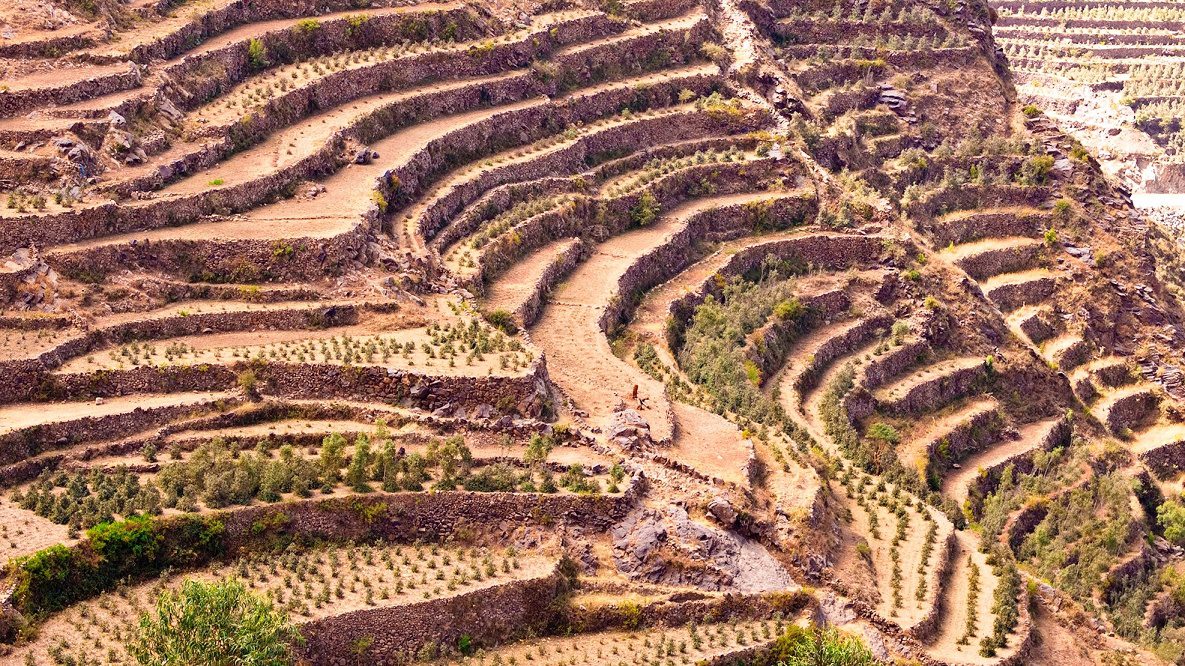Yemen has a claim to being the true birthplace of coffee. While Ethiopia is often cited as the origin of Arabica coffee, Yemen plays just a crucial role in the history of coffee as a beverage.
The first Arabica trees did in fact appear in Ethiopia or Sudan, but Yemen is the first place that coffee was cultivated. It was also probably the first place that coffee was brewed, with roasted coffee beans and hot water coming together in about 1450. Sufi monks came up with this beverage in order to stay up during long nights of meditation. Coffee is so central in Yemen’s history that a coffee plant is featured on its national emblem.
This long history means Yemen also has a unique coffee farming landscape. Some Yemeni farms are up to 10 generations old, with ancient terraces stretching across the rugged mountains, managing to grow coffee in this inhospitable environment. But this unique landscape and storied history are underrepresented on the global coffee market, particularly in specialty coffee. Several factors are at play here.
Coffees from Yemen have often been described as wild. Water is a scarce resource in Yemen, which means that farmers process their coffees naturally. They lay out the freshly picked cherries on drying beds, roofs, or fields – wherever they had space – in amongst other crops and even livestock. This has a huge impact on the final coffee, with very unusual, bold tasting coffees with strong fermentation notes and interesting, unusual favour profiles.
This means that there isn’t a specific flavour profile that might be associated with coffee from Yemen. Most coffee farmers in Yemen run very small operations with tiny harvests, and will process the coffees themselves, using their own techniques, producing coffees without much of their original flavours, or terroir, remaining. Moreover, Yemen has a complex web of traders and middlemen, meaning that contact between importers and farmers is nearly impossible to set up. All of this combines to mean that Yemeni coffee is not very traceable, which has locked it out of the specialty coffee industry in the past, which demands very granular information on the exact origin of the coffee.
Some innovators have set up centralised processing facilities that buy freshly picked coffee cherries directly from farmers in the region, and process them with more modern methods. This approach has helped spread Yemeni coffee into the specialty world, allowing better traceability, more transparent processing that show’s of the terroir of Yemen, and fetching a higher price than commodity grade coffee.




